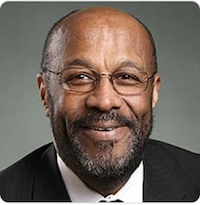With every passing day, the Republican Party in the United States is being taken over by people who embrace the mantra of “Make America Great Again.” That phrase has been the call to action for people who listen to and embrace the views of Donald Trump, who revived that phrase in 2015 when he began his run for President. It had first been used by Ronald Reagan in the 1980s.
The question remains the same for Reagan then and Trump today; what is meant by the word “again?”
I have no argument with the phrase “make America great.” That is an aspirational statement about making the future of this country different from and better than the past. Make America Great suggests that our democracy is unfinished business, because not all people in this country have been included as full and equal citizens. It brings to mind the words of the poet Langston Hughes who wrote, “America never was America to me. But I swear this oath - America will be.”
I have no argument with making America great as an aspirational goal. What I question and object to is the word “again.” Rather than being aspirational concerning America’s future that is more inclusive and equitable, “again” suggests a return to America’s unjust and inequitable past. When was America great in ways that were fair and just for all Americans black and white, young and old, native born and immigrants from other countries?
When was America great in ways fair and just for all Americans black and white, young and old, native born and immigrants from other countries?
When was this magical time implied in the phrase “Make America Great Again?” Was it the 1970s before Roe v. Wade protected a woman’s reproductive rights? Was it before 1965 when the Voting Rights Act was passed? Was it before 1920 when women were first able to vote? Was it anytime in the 19th century when slavery snared over four million people in lifelong bondage? Was it in the 18th century when it became clear to white Americans that Native Americans would not and should not be allowed the rights of citizenship? When was this time to which the MAGA movement wants this country to return?
I heard an interview with Senator Trent Lott of Mississippi when he was U.S. Senate Majority Leader in the 1990s. He was asked, “When was the golden age of America?” The question implied that the golden age had already come and gone. Lott’s answer was that the golden age of America was Mississippi in 1955, a time when he was an undergraduate at the University of Mississippi. To quote the theme song of the 1970s TV show All in the Family, “those were the days” for Trent Lott.
Lott seemed either unaware or unconcerned that in Mississippi in 1955, a young man from my hometown of Chicago — Emmett Till — was brutally murdered by men who beat him, shot him in the head, and then threw his body into a river with the motor of a cotton gin wrapped around his neck with barbed wire. The 14-year-old was lynched because he was accused of not conforming to the second-class status that governed all aspects of life for black people in the Jim Crow south at that time.
Is that the “again” that MAGA Republicans want to resurrect? Is that why voting rights are being attacked in 2022, to speed up the return to “again?” Is that why a national abortion ban is being threatened, to speed up the return to “again?” Is that why Republicans are embracing Q-Anon conspiracy theories and a Christian Nationalist theology, to speed up the return to “again?”
Make no mistake about it, the future of the United States as a representative democracy is on the ballot in the 2022 midterm elections.
Some people want to make America great. That is a noble aspiration.
Some people want to Make America Great Again. That is a return to a dark time in this nation’s history when there was no liberty and justice for all.
• • •• • •
—
The Rev. Dr. Marvin A. McMickle, pastor emeritus of Antioch Baptist Church in Cleveland, Ohio, is interim executive minister, Cleveland Baptist Association, American Baptist Churches, USA. He served as president of Colgate Rochester Crozer Divinity School, Rochester, New York, from 2011 to 2019.
he views expressed are those of the author and not necessarily those of American Baptist Home Mission Societies.

